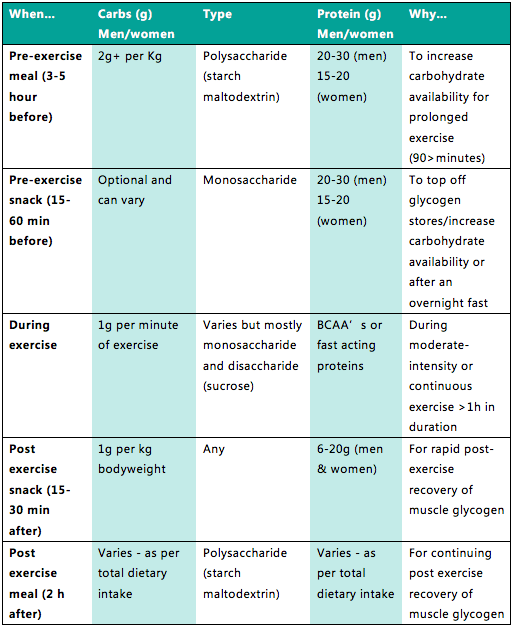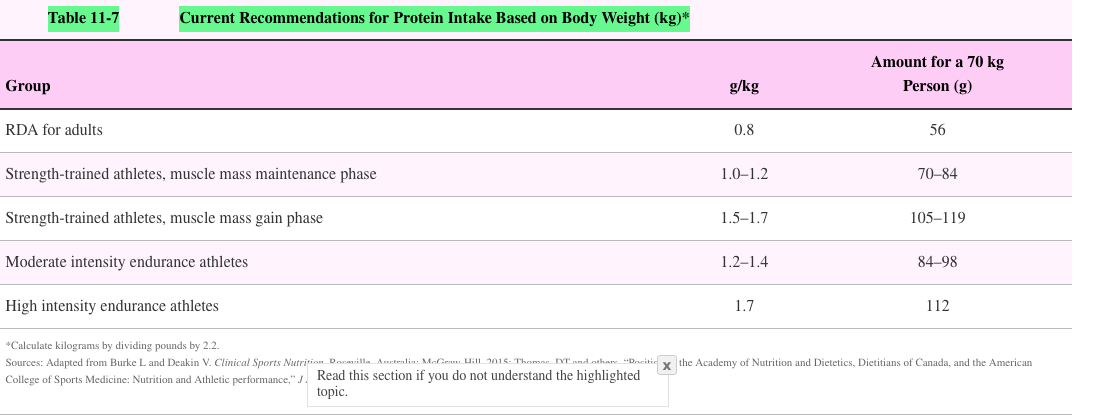30042020 There are times when it might be appropriate for an endurance athlete to increase their normal protein intake beyond 16gkg. 02082016 Nutritionists know that typically endurance athletes should only aim to consume between 12 and 15 grams of protein per kilogram of bodyweight.

Ppt Nutrition For Endurance Athletes Powerpoint Presentation Free Download Id 2687461
Although most endurance athletes get enough protein to support any increased requirements those with low energy or carbohydrate intakes may require nutritional advice to optimize dietary.

Protein intake for endurance and strength athletes. 15-17 gkg body weightday since resistance exercise increases muscle protein synthesis in both elderly and young individuals. Although strength athletes often overconsume protein perhaps in response to marketing by the food and supplement industry the now common practice of consuming perhaps 20 g of usually dairy proteins after resistance exercise is recommended. Despite these elevated requirements in top.
And recommendations for protein intake were made. However older athletes in heavy training particularly those involved with strength and power sports may require increased protein intakes eg. 20062016 For instance the protein intake for endurance-trained athletes is recommended to be 1214 g protein kg-1 d-1 which is reflected in many sports science consensus statements 13 and may be related in part to the associated increase in amino acid oxidation during endurance exercise.
Whereas these recommendations exceeded the US recommended daily allowance RDA for protein 08 g protein kg71. Its important to continue to provide your body with sufficient carbohydrate intake as protein is not nearly as efficient a fuel for endurance activities. Ideally one hour before higher intensity sessions or strength training you should take in 10 to 20 grams of protein along with 35 grams of carbohydrates for the best results.
The most recent recommendations for athletes from the American College of Sports Medicine ACSM also focus on protein timing not just total intake ensuring high quality protein is consumed throughout the. For example an athlete who weighs 77kg or 170 pounds would need to eat 115 grams or 4 ounces of protein daily. Athletes may require protein for more than just alleviation of the risk for deficiency inherent in the dietary guidelines but also to aid in an elevated level of functioning and possibly adaptation to the exercise stimulus.
Both the ACSM and AND recommend 15-25g protein after exercise to support muscle protein synthesis for power athletes and muscle repair for endurance athletes. The protein requirements and recommended protein intake in endurance-trained. Protein also plays an important role post-workout.
The only situation where dietary protein requirements exceed those for relatively sedentary individuals is in top sport athletes where the maximal requirement is approximately 16 gPROkgd. For the top sport elite endurance athlete the increase in dietary protein intake may be up to 16 g. 01122006 Relative to endurance athletes and the sedentary population a greater protein need exists for strengthpower athletes 13For strength trained individuals to maintain a positive nitrogen balance it appears that daily protein consumption should be between 16 to 18 gkg-1 day-1 13The greater protein requirement is thought to be related to the enhanced protein.
Some individuals intake may be higher within 0 to 2 hours after exercise to increase the protein synthesis muscle building process. For strength and endurance athletes protein requirements are increased to around 12-20g of protein per kilogram of bodyweight per day. 14022017 In regards to the timing of protein intake the position statement recommends that individuals consume 025 to 03 grams of high-quality protein per kilogram of body weight 15-25 grams on average.
12042019 Track and field athletes who are restricting energy intake -- and have the goal of minimising the loss of lean body mass -- should target protein intakes of. The main belief behind the large quantities of dietary protein consumption in resistance-trained athletes is that it is needed to generate more muscle protein. Student in a Nutrition Diploma Program Knows What Is Needed to Build Muscles.
Strength or speed athletes were recommended to consume about 1217 g protein kg71 BW day71 and endurance athletes about 1214 g protein kg71 BW day71 where BWbody weight. From a practical perspective the principle of dietary variety should be applied. A 15-25g portion of protein could be three to four ounces of lean meat a protein shake or bar or Greek yogurt and one ounce of nuts.
While its generally accepted that athletes need more protein than sedentary people recommendations vary significantly depending on the type of athlete current body weight total energy intake whether weight loss or weight gain is the goal exercise intensity and duration training status the quality of the dietary protein and the individuals age2 The general rule of thumb is 12 to 14 gkg of body weight for endurance athletes and 12 to 17 gkg of body weight for strength. 01072004 For the well-trained endurance athlete training 4 to 5 dwk for longer than 60 min there appears to be a very modest increase in dietary protein requirements of only 20 to 25.

Pdf Beyond Muscle Hypertrophy Why Dietary Protein Is Important For Endurance Athletes

Clarifying The Amount Of Protein In An Athlete S Diet Nutritionrx

Pre Post Exercise Nutrition Covering Hydration Protein And Carbohydrates Swimming Uvac

Perfecting Protein Intake In Athletes How Much What And When

Nutrition For Fitness And Athletics Chapter 15 Learning Objectives Understand The Importance Of Diet For Fitness And Athletics Know The Approximate Ppt Download

Perfecting Protein Intake In Athletes How Much What And When
Https Journals Humankinetics Com Downloadpdf Journals Ijsnem 27 2 Article P105 Pdf

Sports Nutrition For Endurance Athletes Lecture Content Provided

Table 11 7 Current Recommendations For Protein Intake Chegg Com

0 comments:
Post a Comment